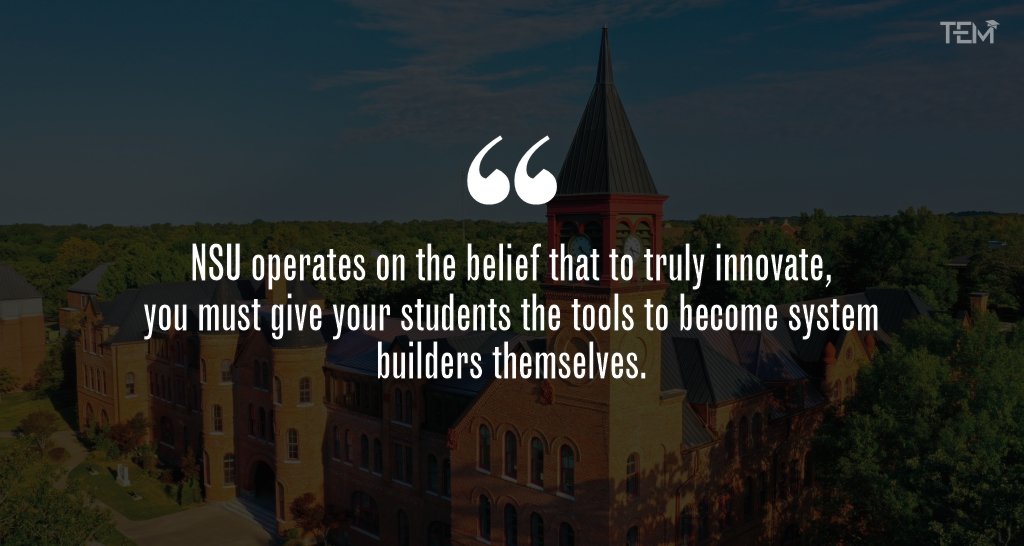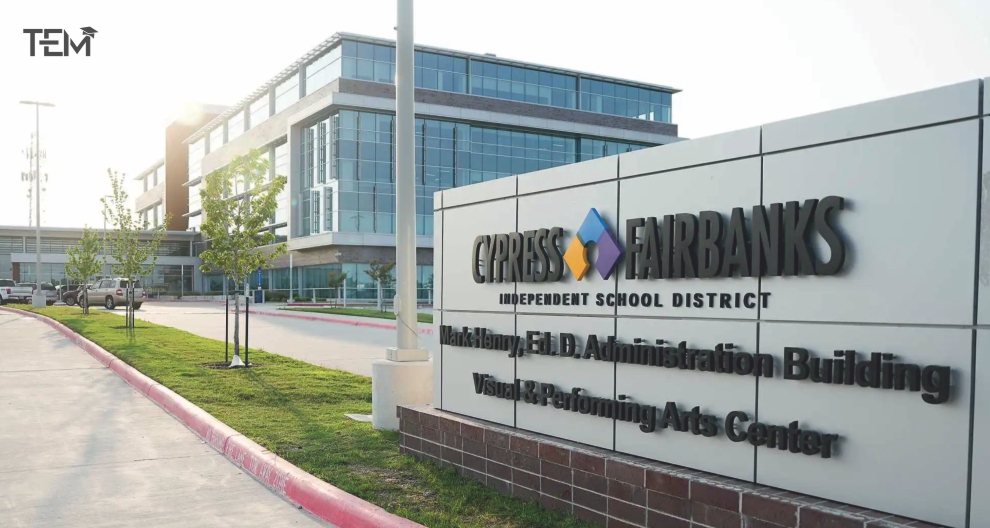In the complex and often turbulent world of healthcare, the most significant battles are not fought in boardrooms or on stock exchanges. They are won in the quiet moments of patient care, through the strategic deployment of new technologies and in the minds of those educated to lead from the front lines. While many institutions view nursing education as merely filling a role, Northeastern State University sees it as an act of strategic design. They are not just training nurses; they are cultivating the architects of tomorrow’s healthcare system—one that is more accessible, intelligent and profoundly human.
Since its inception, the NSU Nursing Program has operated under a clear and unshakeable mission: to find a better way. This ethos is the driving force behind every program launched, every partnership forged, and every student empowered. It is a philosophy that has transformed NSU from a regional trailblazer into a national model for innovation, demonstrating how to build influence not through volume but through vision and impeccable execution.
A Legacy of Strategic Firsts
A great strategy is defined by its foresight. Long before “access” and “flexibility” became industry buzzwords, NSU was establishing a strong foundation for nursing education. The journey began in 1982 when NSU launched Oklahoma’s first stand-alone Registered Nurse to Bachelor of Science in Nursing program. This was not a minor adjustment; it represented a fundamental shift in education. The program created a direct university-level pathway for registered nurses to achieve a BSN, significantly elevating the nursing profession within the state. This initiative clearly signaled NSU’s intent to lead rather than follow.
Northeastern’s pioneering spirit continued into the new millennium. In 2000, as the digital age began, NSU again positioned itself ahead of the curve by introducing Oklahoma’s first fully online RN to BSN program. This strategic move aimed to eliminate geographical barriers for working nurses, particularly those serving in rural and underserved communities, that are vital to the state’s healthcare system.
Understanding that a strong healthcare system requires capable leaders and educators, NSU expanded into graduate education. In 2010, the university launched a Master of Science in Nursing program focused on Nursing Education, responding to a growing national shortage of qualified nursing faculty. In 2018, NSU further broadened its offerings by adding two additional MSN tracks: Administrative Leadership and Nursing Informatics.
These programs were carefully designed to meet the evolving demands of the healthcare landscape, equipping nurses to manage complex organizations and integrate technology into clinical practice. Each step taken by NSU was deliberate, addressing specific and critical needs within the healthcare industry.
Programs Engineered for Impact
Today, NSU’s academic offerings reflect its innovative history, preparing nurses with the essential skills required in a modern healthcare environment. Among these is the fully online RN to BSN program, designed for working professionals. A standout feature of this program is the Concurrent Nursing Program, a collaborative initiative that allows students enrolled in an associate degree program to simultaneously take courses toward their BSN. This pragmatic model accelerates degree completion, lowers costs, and enables more highly skilled nurses to enter the workforce more quickly.
The Master of Science in Nursing program is equally strategic, offering two distinct pathways for entry. The traditional path is aimed at students holding a BSN, while the non-traditional path provides a bridge for registered nurses who have a bachelor’s degree in another field. This inclusive approach broadens the talent pool, recognizing that valuable skills from other disciplines can enhance the nursing profession. Currently, students can select from three 32-credit-hour MSN tracks: Nursing Education, Administrative Leadership and Nursing Informatics—key areas of focus in modern healthcare leadership.
However, earning a degree from NSU encompasses more than just completing courses. The program is distinguished by the opportunities it provides for students to showcase their expertise. A cornerstone of this approach is the annual Evidence-Based Practice Symposium. This is a professional forum where students present their research and clinical inquiry projects to an audience of faculty, peers, and practicing healthcare professionals from across the region. With options to present in person or virtually via Zoom, the symposium underscores NSU’s commitment to accessibility.
As Dawn Hubbard, an RN to BSN student who presented her work on May 9, 2025, can attest, this experience enhances professional presentation skills, fosters scholarly dialogue, and helps build valuable professional networks. Dawn worked closely with her faculty mentor, Ms. Kelsey Smith, the lead faculty for the synthesis course in the undergraduate program. Ms. Smith noted that the EBP Symposium exemplifies NSU’s mission to cultivate nurses who are not only clinically competent but also critical thinkers and active contributors to the advancement of the nursing profession.
This commitment to leadership development extends to the national level. NSU actively encourages students to engage in health policy and advocacy, providing them with access to influential forums. A prime example is MSN student Kimberly Moon’s participation in the American Association of Colleges of Nursing Student Policy Summit in Washington, D.C. Moon engaged directly with healthcare policymakers, gaining firsthand insight into the legislative process. This experience reflects NSU’s mission to produce graduates who are not just clinically skilled but also policy-aware leaders ready to advocate for patients and the profession.
Faculty Excellence, Community Impact, and Global Engagement
The strength of an institution ultimately comes from its people. NSU’s Nursing Program is supported by a dedicated faculty team with a diverse range of experience in education, administration, informatics and direct patient care. In the online format, these faculty members are known for their exceptional accessibility, offering regularly scheduled Zoom office hours for one-on-one mentorship. They create a supportive yet rigorous learning environment where critical thinking and professional growth are prioritized.
NSU Nursing faculty are deeply engaged beyond the university as researchers, clinicians and global health advocates, bringing extensive real-world experience into their teaching. For example, Dr. Cynthia Brown, faculty in the MSN-Administrative Leadership program, conducted significant research on Native American nursing students, resulting in a $2 million grant to fund scholarships and expand educational opportunities for underrepresented populations.
Dr. Parker Brigance, faculty in the MSN Informatics program, served as the informatics architect on a nursing-led, multidisciplinary team that developed a screening process to identify human trafficking victims in clinical settings. What began as a single-hospital initiative has since been adopted by a global electronic medical records company and is poised to become part of national standards of care. Similarly, Dr. Philomena Mistretta, Coordinator of the MSN program, maintains an active clinical role as an Acute Care Gerontology Nurse Practitioner at the VA Medical Center, providing specialized care to aging veterans with complex health conditions and ensuring her teaching remains grounded in current clinical practice.
Another compelling example is the series of international medical missions led by Dr. Heather Fenton. During these trips, she and her team collaborate with local healthcare providers to deliver essential medical supplies and offer care to vulnerable populations, fostering cross-cultural understanding and compassion in action.
Faculty experiences like these inform and enrich the NSU Nursing curriculum, particularly in undergraduate and graduate culture courses, population health and policy development. Faculty integrate these real-world encounters with healthcare inequities into the classroom to highlight the complexity of serving vulnerable populations. These extracurricular engagements become powerful teaching tools that emphasize advocacy, cultural competence and compassionate care. By sharing firsthand experiences with systemic challenges and community resilience, faculty help students understand what it means to lead with empathy and act with purpose—cornerstones of NSU Nursing’s commitment to service and social responsibility.
Additionally, NSU extends its impact through a strong network of strategic partnerships with community colleges, healthcare systems and clinical agencies across the United States. These partnerships are not passive; they involve active collaborations that provide diverse clinical placements in rural, tribal and urban settings. Leaders from these partner organizations contribute valuable advisory input, ensuring that the curriculum aligns closely with workforce needs. This network guarantees that students gain real-world experience across a wide range of patient care environments.
A Blueprint for Success
True to its mission of serving the broader community, NSU has engineered its admissions process to be as accessible as possible. With one of the lowest tuition rates in Oklahoma, affordability is a key aspect of its strategy. The application process is straightforward: it requires a $25 fee, an online application form and official transcripts. Application deadlines are clear and consistent: August 1 for fall admission, December 1 for spring admission and May 1 for summer admission.
This commitment to accessibility is supported by a wide variety of comprehensive scholarships and a suite of support services. Every student is guided by a nursing faculty mentor and has full access to the online library and responsive IT support. These resources are intentionally designed to create an immersive and supportive educational environment, demonstrating that online education does not have to be isolating.
The digital campus serves as a hub for interaction. NSU utilizes Blackboard, a robust learning management system, to host coursework, discussions and group projects. The virtual environment is rich with opportunities for connection, including student organizations like the Sigma Theta Tau International Honor Society, live webinars with industry experts and social media groups that help students build informal support networks. Comprehensive support services—ranging from academic advising and career counseling to mental health resources and tutoring—are all provided online, ensuring that every student has the tools they need to succeed, regardless of their location.
The Ultimate Validation and the Road Ahead
In any industry, third-party validation is the ultimate measure of quality. The NSU Nursing Program has maintained continuous accreditation since its inception in the 1980s, first through the National League for Nursing Accrediting Commission and later through the Accreditation Commission for Education in Nursing.
Recently, this legacy of quality was reaffirmed in a significant way. In the spring of 2024, the program conducted a comprehensive self-study and submitted a formal application for accreditation from the prestigious Commission on Collegiate Nursing Education. In May 2025, the CCNE awarded full accreditation status to NSU’s nursing programs. This is not merely a rubber stamp; it is a rigorous affirmation that the university upholds the highest national standards, ensuring that graduates are well-prepared to succeed in an evolving healthcare landscape.
However, NSU is not resting on its achievements. The university is actively pursuing a strategic expansion of its academic offerings. Currently under consideration is a pre-licensure Bachelor of Science in Nursing program. This hybrid-format program, based on the Tahlequah campus, will combine in-person clinical instruction with online coursework, providing a flexible and high-quality path to becoming a registered nurse.
In addition, two innovative Master of Science in Nursing tracks are in development. The first, an MSN in Veterans Health, aims to equip nurses to address the unique and complex healthcare needs of military veterans. The second, a pioneering MSN in American Indian Health, will be the first program of its kind in the nation. This initiative reflects NSU’s deep commitment to serving Indigenous communities through culturally responsive care.
The Guiding Philosophy: “Seeking a Better Way”
At the helm of this dynamic and forward-thinking program is Dr. Heather Fenton, Director of Nursing Programs. Her leadership is a reflection of the program’s core values. Dr. Fenton’s contributions have earned her numerous accolades, including Mentor of the Year from the NSU Graduate College, recognition as an Outstanding Leader in Nursing Education by the Oklahoma Nurses Association, and a place among Oklahoma’s Great 100 Nurses.
She embodies the NSU Nursing Program’s motto: “Seeking a better way.” It is a simple phrase with profound implications. It is a call to action for students and faculty alike.
Dr. Fenton’s message to students is clear: the future of healthcare belongs to those who are prepared to lead with purpose and adapt with resilience.
“We are deeply committed to preparing future nurses who are not only clinically skilled, but also forward-thinking professionals equipped to stay ahead of industry trends, refine their competencies and drive innovation in patient care.”
This is the essence of the NSU strategy. It is not about reacting to change; it is about creating it. By focusing on access, leadership and innovation, Northeastern State University is not just educating nurses. It is building a better future for healthcare.

“NSU operates on the belief that to truly innovate, you must give your students the tools to become system builders themselves.”
Also Read: Nursing Schools Leading Healthcare Innovation, 2025


